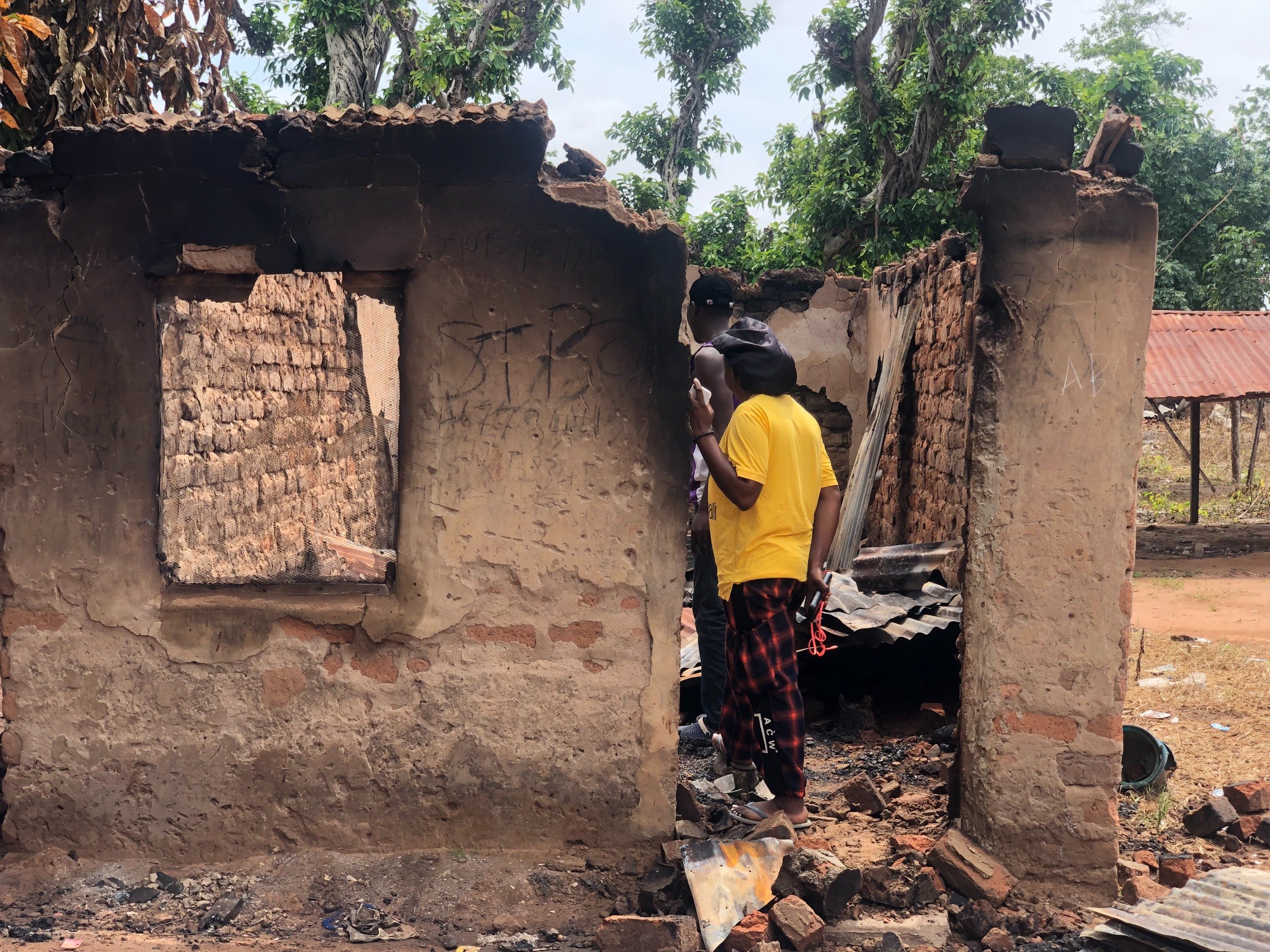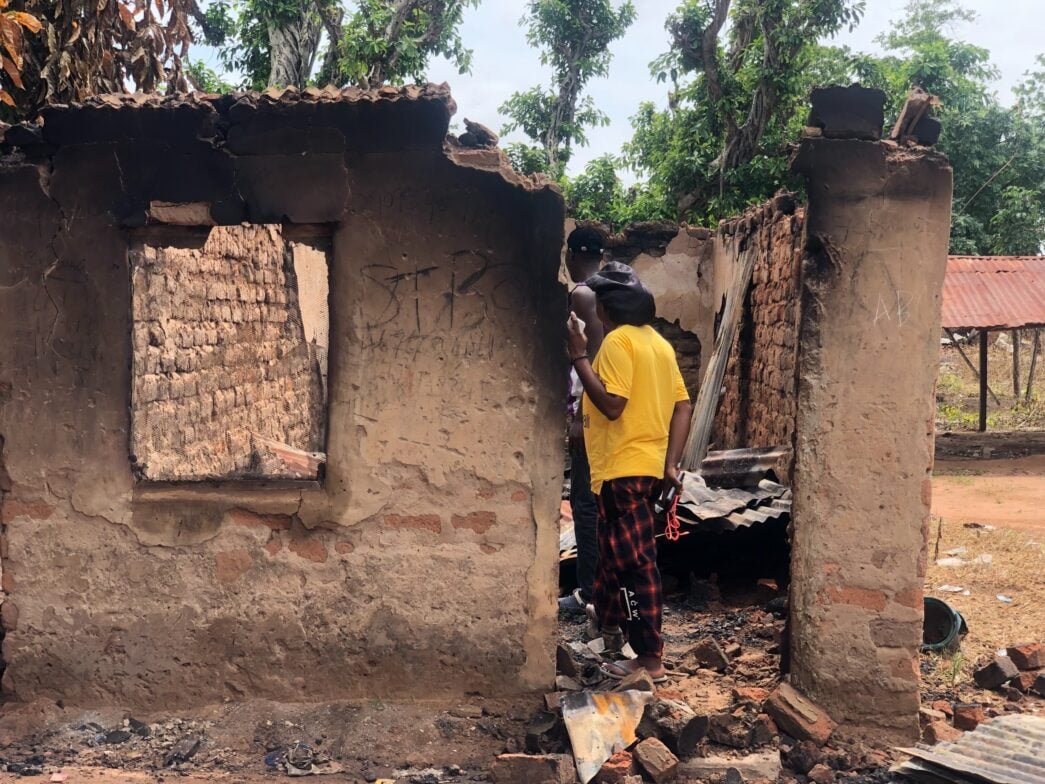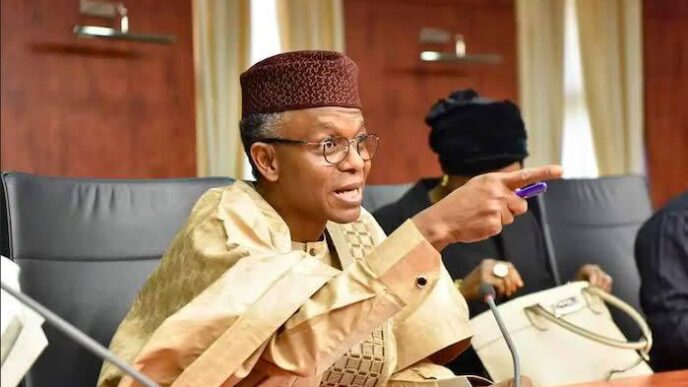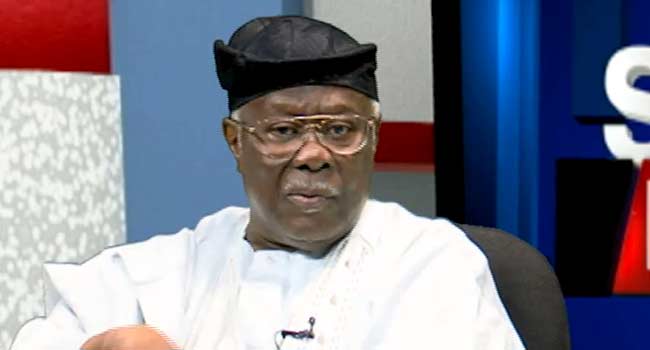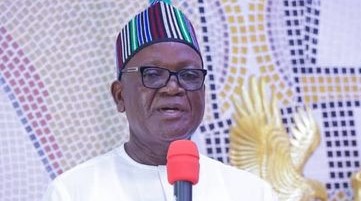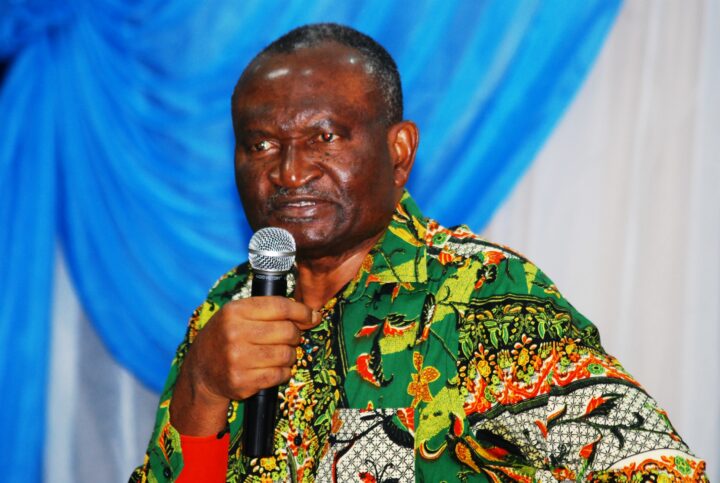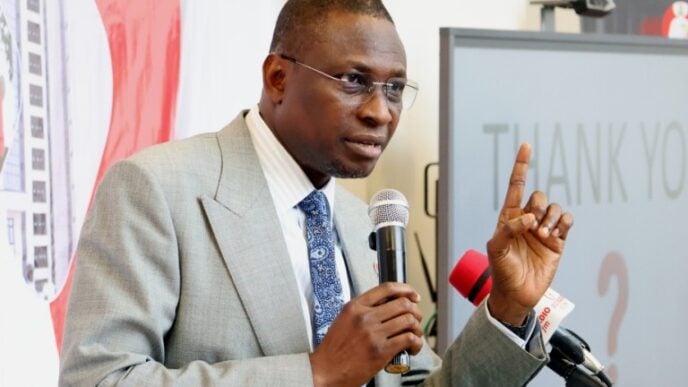Survivors of the killings in Yelewata community in Benue state have recounted details of the night armed attackers invaded their communities.
The survivors spoke on Thursday during a town hall meeting organised by News Central TV in Makurdi, the Benue state capital.
The event, titled ‘Crisis in the Heartland: Ending the Cycle of Violence in Benue’, brought together victims, community leaders, civil society groups, and government representatives to explore solutions to the persistent insecurity in the state.
Joseph Kwagh, one of the victims of the June 13 attacks on Yelewata and Daudu communities in Guma LGA, said he lost eight members of his family during the invasion.
Advertisement
According to him, the assailants came while it was raining and began shooting and setting houses ablaze.
Jerry Ayem, another survivor, said his mother and children were killed during the attack when suspected herders broke into her home at about 10 pm.
Her account left many in the audience visibly shaken, painting a grim picture of the events that unfolded in the state.
Advertisement
“Around 10 pm, the Fulanis broke into our home, firing their guns. They smashed through our door. My mother and children were killed — they were hacked with machetes,” Ayem said.
Another survivor identified as David Ukeyima said he lost his wife and three children during the attack.
Ukeyima, who bore visible gunshot and machete wounds, said the attackers surrounded their home and set it ablaze to force them out.
With no other option, he fled the burning house, but his wife and children were killed, while he sustained injuries while trying to escape.
Advertisement
Ier Jonathan-Ichaver, co-founder of Sesor, a non-governmental organisation, said the situation has gone beyond “isolated clashes” between farmers and herders, accusing the government of failing in its constitutional responsibility to protect lives.
She claimed her organisation and partners have tracked over 622 coordinated attacks in Benue since 2009, with more than 1,100 people killed in the last two years alone.
She described the crisis as a “threat to national food security”, noting that more than two million people have been displaced in Benue alone.
“These attacks are genocidal. This is not just in Benue — it’s across the Middle Belt. What we are seeing is ethnic cleansing,” Jonathan-Ichaver said.
Advertisement
“Section 14(2)(b) of the constitution says the primary purpose of government is the security and welfare of the people. Without justice, there can be no peace.”
‘ATTACKERS WERE CAMPED NEARBY’
Advertisement
Denen Gbobgbon, president of the United Farmers Association in the Benue Valley, said the narrative of farmer-herder conflict is “misleading”.
Gbobgbon accused some traditional leaders and officials in neighbouring Nasarawa state of complicity.
Advertisement
He alleged that land was sold to foreign elements from Mali and Niger, who now lay claim to ancestral farmlands in Benue.
The farmer urged the federal government to take decisive action to end the violence and deliver justice to victims.
Advertisement
“We don’t have real issues with herders. What we are facing is a coordinated genocidal attack by proscribed bandits,” Gbobgbon said.
“The Yelewata attack was not carried out by herders. These attackers were camped, prayed for, and we informed security agencies of their presence since November 2024 — yet nothing was done.
“Our ancestral lands have allegedly been sold to these groups, and some claim they were relocated on government orders. This must be investigated.”
Also speaking at the meeting, Ibrahim Galma, secretary of Miyetti Allah Cattle Breeders Association (MACBAN) in Benue, said both farmers and herders have suffered losses, but noted that the crisis has evolved into “full-blown criminality”.
He commended efforts by both state and federal authorities, but called for more inclusive dialogue and support for displaced persons from all affected communities.
“This is no longer a farmer-herder issue. It has been hijacked by criminal elements,” Galma said.
“The Fulani community has also been devastated in parts of Benue — we’ve lost access to farms in many areas.”
On June 13, gunmen attacked Yelewata and Daudu communities in Guma LGA of Benue, killing over 200 people, including internally displaced persons (IDPs) and farmers.
The attack, blamed on suspected armed herders and bandits, is one of the latest in a string of violent incidents that have left many dead and dozens displaced across Benue.
President Bola Tinubu had ordered security agencies to arrest the perpetrators and restore order.
On June 24, Kayode Egbetokun, the inspector-general of police (IGP), announced the arrest of 28 suspects linked to the attack.
